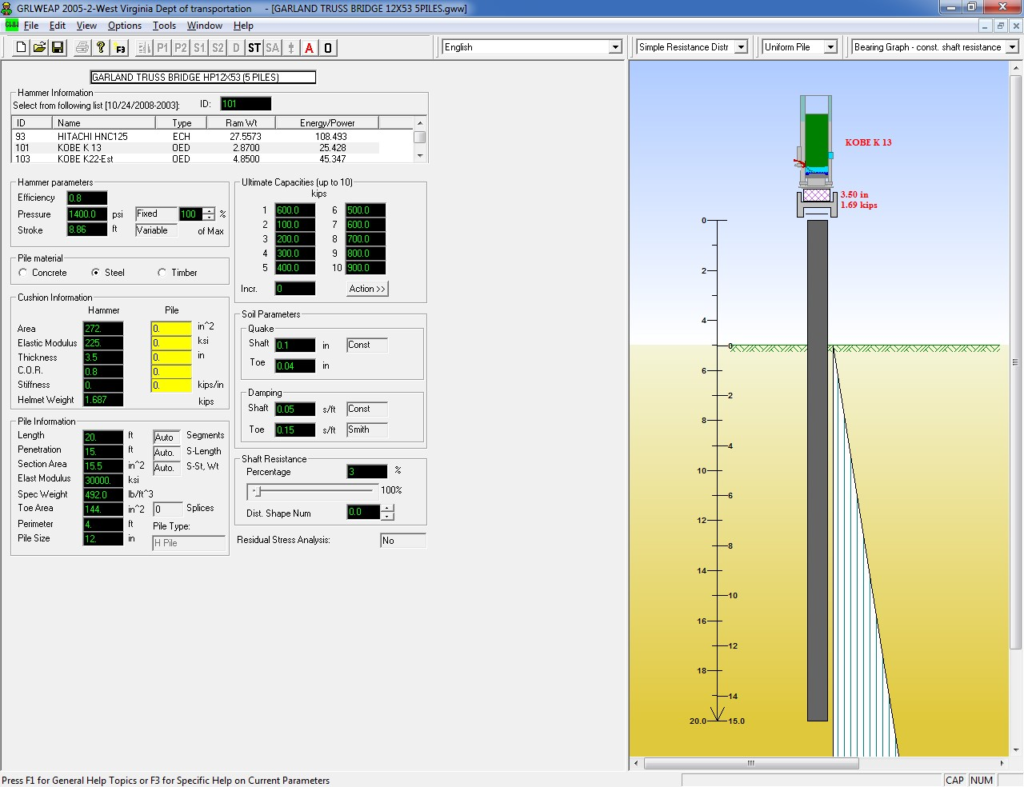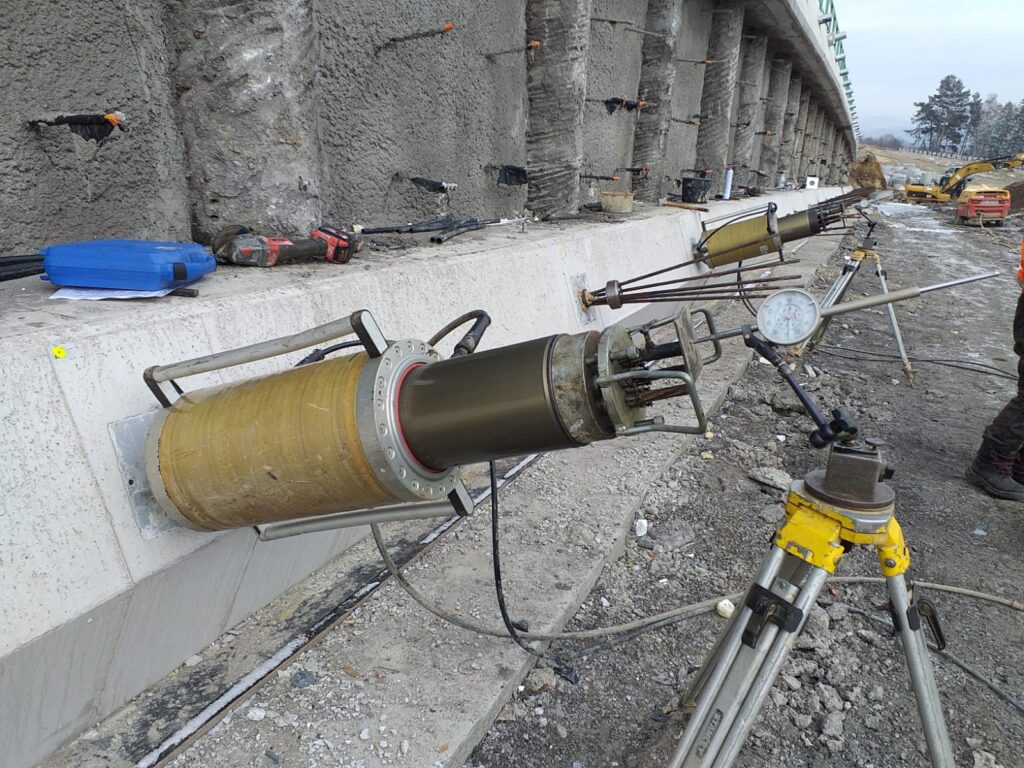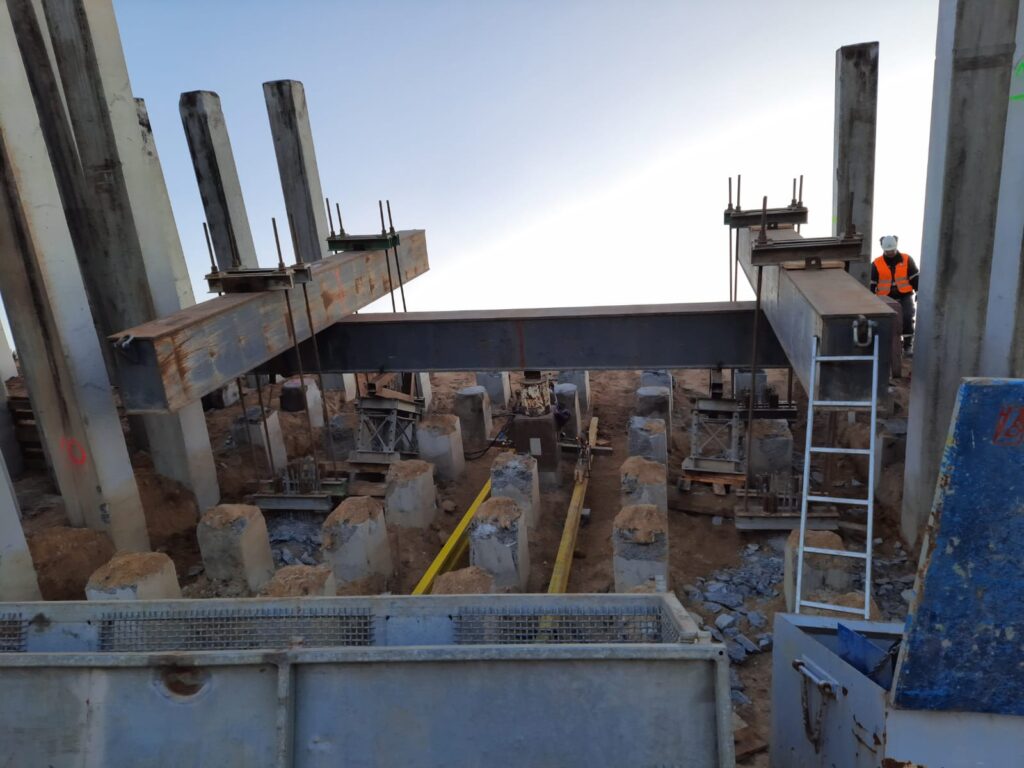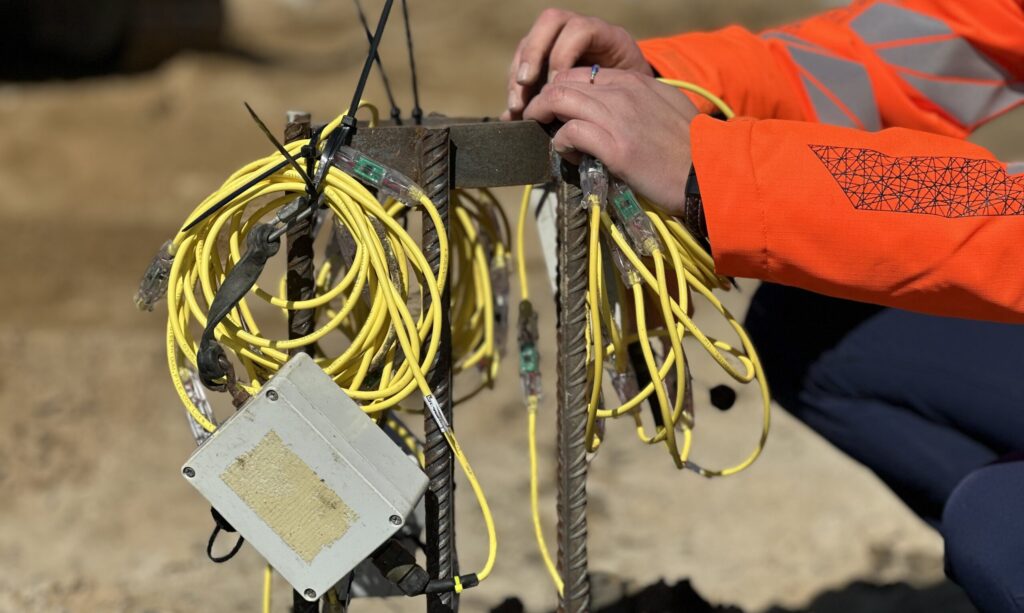Driveability Analysis

is a predictive assessment that determines whether piles or sheet piles can be installed to the required depth using impact or vibratory driving methods. By simulating the interaction between soil, pile, and equipment, it helps prevent refusal, structural damage, or costly delays—ensuring an efficient and safe installation process before construction begins.
Dynamic load test

is used to assess the bearing capacity of foundation piles by applying short, high-energy blows with a hammer. Sensors installed on the pile record acceleration and strain, allowing engineers to calculate load transfer and verify pile performance quickly and cost-effectively.
Ground anchor testing

is performed to verify the load-bearing capacity and installation quality of anchors embedded in soil or rock. By applying controlled tension forces, the test confirms whether anchors meet design specifications and ensures long-term stability for retaining structures, slopes, or foundations.
Static load tests

is a fundamental method for verifying whether a foundation element—typically a pile—can safely carry the intended design loads under real ground conditions. This test provides engineers and investors with confidence in the safety, quality, and long-term performance of the structure before main construction begins.
Thermal Integrity Profiling

is a non-destructive method used to assess the quality and uniformity of concrete piles. By measuring the temperature distribution during curing, TIP detects defects such as necking, inclusions, or concrete segregation across the entire pile length.
Pile Integrity Testing

is a fast and non-invasive method used to verify the structural soundness and continuity of precast or cast-in-place piles. By analyzing reflected wave signals, it helps detect cracks, necking, or material voids along the pile shaft.











